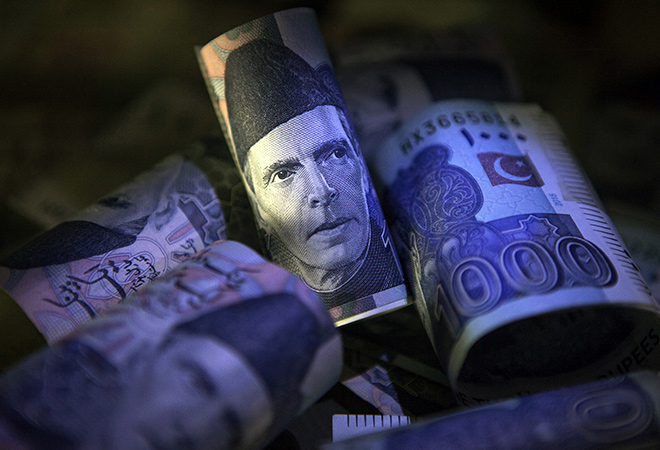An annual budget worth 14.5 trillion has been presented by the national assembly on the 9th of June, 2023. Senator Muhammad Ishaq Dar, presented the budget on the floor of the national assembly.
In his budget speech Finance minister Ishaq Dar said that, “Any independent analyst will tell you that this budget is not an election budget, but is rather made by keeping in view the elements of the real economy,”.
“The current economic crisis is a result of the mismanagement of the economy by the PTI government in its tenure,” he said.
He also said that no new taxes have been imposed in this budget. The target for revenues and expenditures in the budget for FY24 are as follows:
Expenditure
The government has allocated a total current expenditure of Rs13,320 billion for FY24, which represents a 53% increase compared to the budgeted figure of the previous year.
For the same fiscal year, the budget for defence expenditure is set at Rs1,804 billion, reflecting a 15.4% increase compared to the previous year’s budget. This amount constitutes 1.7% of the country’s GDP.
In FY24, interest payments or debt servicing have experienced a significant rise of 85% from the previous year, reaching Rs7,303 billion. This amount accounts for 55% of the total current expenditure, making it the government’s largest expenditure category.
Apart from that the major expenditures in the budget are Pensions (Rs761 billion), Civil Government (Rs 714 billion). Subsidies worth Rs 1,074 billion have also been announced.
Revenue:
The total revenue budgeted for FY23 stands at Rs 12,163bn. Subtracting provincial transfer of Rs5,276bn, net revenue comes out at Rs6,887bn, which is 36.9% higher than last year.
Tax revenue for FY24 is estimated at 9.2 trillion which is 21% higher than the previous year. Other than that the government has estimated a hefty amount in foreign loans and grants for the upcoming year.
Targets:
As per Ishaq Dar, the growth targets set in next year are “modest” and have been put in place by keeping in mind the economic situation.
The GDP growth is estimated at 3.5% whereas the inflation target is set at 21%. The government is hopeful for a decline in the current account deficit, leaving it at $6 billion by the end of this year. Similarly the tax to GDP ratio is estimated at an optimistic 8.7%.
Reliefs:
For the purpose of achieving growth, the government has announced special reliefs for IT, and agricultural sectors. IT exports and value addition to agricultural produce has been encouraged by the government through taxation measures.
Apart from that, government employees have been awarded relief as well. Minimum wage is proposed to be Rs32,000. Similarly wages of government employees from Grades 1-16 and Grades 17-22 are to be increased by 35pc and 30pc, respectively. Whereas pensions are to be increased by 17.5% flat.
Rs1 billion has been allocated for health insurance of working journalists.
The government is choked for fiscal space as it looks to meet the requirements of the International Monetary Fund (IMF). Moreover, with the upcoming elections it has to provide some relief to the public.
With the risk of defaulting on the sovereign debts rising and the inflation at a record high level, the budget is one of the most crucial steps in the political future of PMLN and its allies.
The country missed almost all of its economic targets set in the last budget, most notably its growth target, which was initially set at 5pc, revised down to 2pc earlier this year. Growth is now projected to be just 0.29% for the fiscal year ending June 30.
Foreign exchange reserves, as of Thursday, have dipped below $4bn, according to the State Bank of Pakistan (SBP), enough to cover barely a month of imports.
The government has limited fiscal space to introduce popular measures that will win it votes yet some effort has been made in the budget. It is imperative for the current government to ensure that the budget pans out as estimated.




